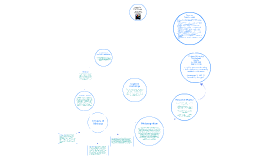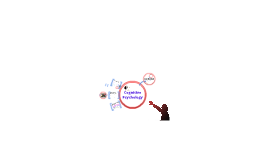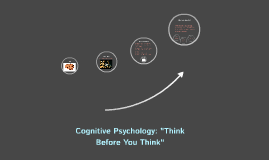Cognitive Psychology
Transcript: Cognitive Psychology Concerns the process whereby people categorize and organize stimulus information into meaningful units to make sense of the stimuli. A heuristic is a mental shortcut that allows people to solve problems and make judgments quickly and efficiently. These rule-of-thumb strategies shorten decision-making time and allow people to function without constantly stopping to think about the next course of action. While heuristics are helpful in many situations, they can also lead to biases. Nativism- in the sense familiar to scholars of linguistics, psychology and cognition, proposes that certain key traits of a species are not learned but emerge from a mind that is in some way already set up to deal with the environment in which it will develop and function. Sensory memory is the shortest-term element of memory. It is the ability to retain impressions of sensory information after the original stimuli have ended. It acts as a kind of buffer for stimuli received through the five senses of sight, hearing, smell, taste and touch, which are retained accurately, but very briefly. Short-term memory acts as a kind of “scratch-pad” for temporary recall of the information which is being processed at any point in time, and has been referred to as "the brain's Post-it note". It can be thought of as the ability to remember and process information at the same time. It holds a small amount of information (typically around 7 items or even less) in mind in an active, readily-available state for a short period of time (typically from 10 to 15 seconds, or sometimes up to a minute). Long-term memory is, obviously enough, intended for storage of information over a long period of time. Despite our everyday impressions of forgetting, it seems likely that long-term memory actually decays very little over time, and can store a seemingly unlimited amount of information almost indefinitely. Indeed, there is some debate as to whether we actually ever “forget” anything at all, or whether it just becomes increasingly difficult to access or retrieve certain items from memory. "cognition about cognition", or "knowing about knowing". It can take many forms; it includes knowledge about when and how to use particular strategies for learning or for problem solving.There are generally two components of metacognition: knowledge about cognition, and regulation of cognition. Eye Movements and Cognitive Processes: Dr. Eileen Kowler What factors determine where the eye moves and how accurately and quickly it arrives at its intended destination? Which patterns of eye movements are most useful for gathering visual information? What can we learn about cognitive processes by studying an observer's pattern of eye movements? Cognitive processes,including thinking, language, and memory, and their development Prerequisite: 01:830:101 General Psychology (3) Herman Ebbinghaus was born in 1850 in Bramen, Germany. He is known to be the first psychologist to study memory and learning. He did this by traveling different countries, such as England and France, conducting research on the "power of memory" as well as doing experiments on himself. Ebbinghaus's argument was that "remembering involves association". His experiments began with testing his recall memory by memorizing list of words. Afterward he created 2,300 nonsense syllables, which consisted of three letters with the same pattern such as consonant-vowel-consonant. He would test his method by making different length lists and learning intervals. tested how this affected speed of forgetting and learning meaningful material was easier to remember the more time spent memorizing the list, the easier it was to remember Also discovered that rapid loss of recall happens in the first hour Gestalt Laws of Perceptual Organization Rutgers University Psychology Course 01: 830: 305 Cognition (3) Cognitive psychology is the scientific study of mind and mental function, including learning, memory, attention, perception, reasoning, language, conceptual development, and decision making. Heuristics Research Project Metacognition Cognitive Psychology Andrea Perez Cynthia Quinonez Kayla Peters Famous Psychologist 3 Types of Memory Nativism (Language)

















